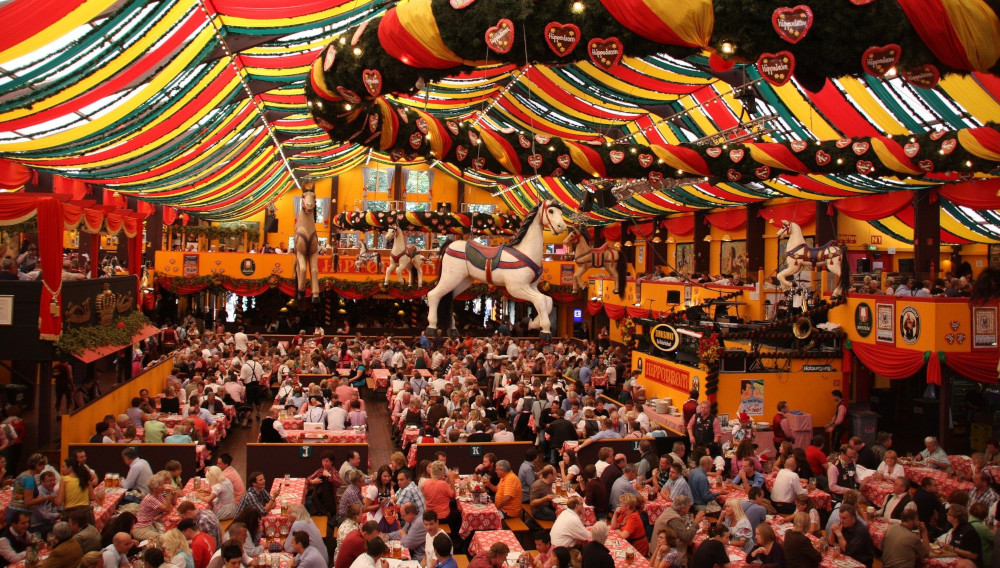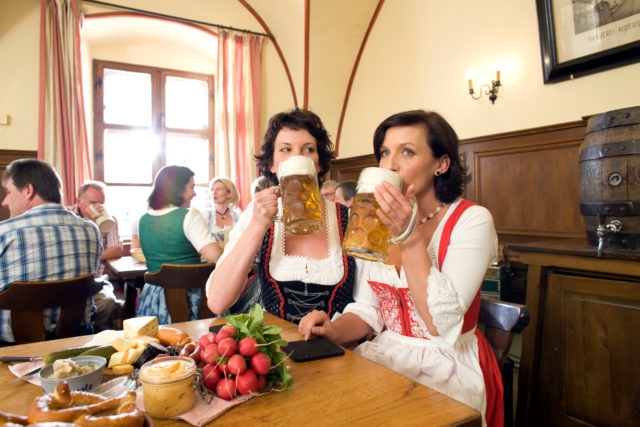Cancelled Oktoberfest – Munich taverns host mini-festivals instead
Germany | Because of the coronavirus pandemic, beer festivals around the world have been cancelled, preventing punters from rendezvousing with their favourite breweries. One of the world’s largest beer festivals, the Munich Oktoberfest, will not take place this year either. Usually attracting millions of visitors, while serving around 60,000 hl beer, it was called off in April.
Munich’s publicans came up with an alternative. Between 19 September and 4 October 2020, the dates of the original Oktoberfest, they will host what has been dubbed the Wirtshaus-Wiesn (“Tavern Oktoberfest”) at their taverns. More than 50 taverns are taking part. Punters are invited to turn up in folkloristic garb and enjoy special dishes and beers, all under strict covid-19 regulations, of course.
Some commentators argued these ersatz-Oktoberfests will persuade punters to drop their guard and will soon lead to rising numbers of covid-19 infections.
In support of struggling fairground people, whose annual revenues have been wiped out, the city of Munich allowed some rides and food stalls to be set up around town during the school holidays (late July to early September).
However, the financial loss to Munich’s economy from the cancelled Oktoberfest is expected to be huge. The 16 days of the Oktoberfest usually contribute more than USD 1.3 billion in revenue.
Good news from China
It will be small consolation to Munich’s brewers that just before the start of the Oktoberfest, the EU and China signed an agreement to protect 100 European Geographical Indications (GI) in China and 100 Chinese GI in the EU against imitations and usurpation.
Among those, beers from Munich, wines from Burgundy and vodka from Poland will be protected from counterfeiting in China in the future. The agreement includes not just the wording “Munich beer” but also variants like “Munich-style”.
It aims at protecting the names of specific products to promote their unique characteristics, linked to their geographical origin, as well as traditional know-how. In 2019, Bavarian brewers exported nearly 500,000 hl beer to China, the majority of those beers coming from Munich.
The agreement has yet to be approved by the EU Parliament and the Council of Member States before entering into force in 2021.


